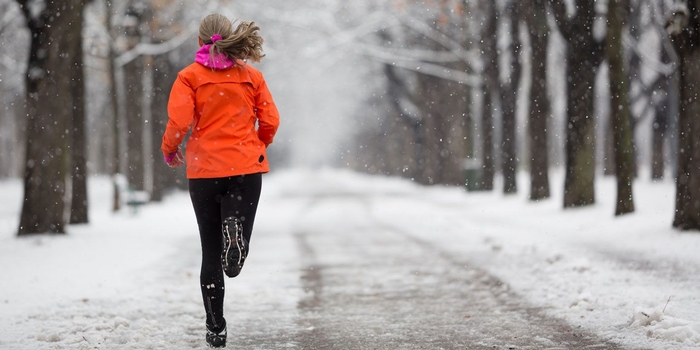Lenox Health Greenwich Village Expert Insights: Tips for maintaining outdoor fitness in cold weather
December 1, 2019
By Dr. Etan P. Sugarman

Don’t let cold weather get in the way of your fitness routine. If you like exercising outdoors, the following tips can help you adapt to the elements during the winter season:
Check the forecast before heading outside—Wind chill extremes can make exercising outdoors unsafe (even with warm clothing) and lead to frostbite. As a general rule, if it's warmer than 5 degrees (F), your chances of frostbite are low. But when the wind chill brings temps down to below -15 degrees, exposed skin can get frostbitten in less than 30 minutes.
Know the signs of frostbite and hypothermia – Early warning signs of frostbite include numbness, loss of feeling or a stinging sensation. Any exposed skin is vulnerable to frostbite. If you suspect frostbite, get out of the cold immediately and seek emergency care if numbness doesn't go away. Hypothermia is abnormally low body temperature. Hypothermia signs and symptoms include intense shivering, slurred speech, loss of coordination and fatigue. Seek emergency help right away for possible hypothermia.
Dress in layers and cover exposed skin – Dressing in layers allows you to adjust to the rise in your body temperature as you exercise. The first layer should be synthetic—something that will wick moisture away from your skin. The second layer should be fleece or wool to help insulate, and the third should be a breathable, waterproof layer to help repel wind. Cotton fabric should be avoided—it loses insulating power when you sweat.
Cover your head, fingers and toes – Our limbs are more susceptible to the cold because blood flow stays concentrated in our core. Wear gloves, a winter hat, scarf, and insulating socks to prevent heat loss. Consider buying exercise shoes a half size or one size larger than usual to accommodate thick thermal socks or an extra pair of regular socks. When it's very cold, use a scarf or ski mask to cover your face. If you find it uncomfortable to breathe in cold air, try creating a barrier by covering your mouth with a very thin layer of fabric from your scarf or neck warmer.
Take long, deep breaths – Your throat can get dehydrated and irritated from breathing in cold, dry air. Taking shallow, quick breaths often exacerbates the problem. Taking long deep breaths and breathing in through your nose can also help to humidify the air before it reaches your lungs.
Add some winter sports to your exercise program – Ice-skating, skiing, snowshoeing, snowboarding, and cross-country skiing all provide cardiovascular benefits. Incorporating them into your exercise program is a great way to cross-train, strengthen and stabilize your muscles while having fun!
Avoid the rain and wind – It’s hard to manage body temperature when you are soaked; water draws heat away from the body 25 times faster than air because of its higher density and heat capacity. Wind pushes air and moisture through your clothes and removes the layer of warm air that surrounds your body.
Remember to stay hydrated – It’s easy to forget about staying hydrated during the winter months. Regardless of the temperature, you’re still creating body heat and sweating, and it’s important to replace those fluids.

An expert in sports medicine, Etan P. Sugarman, MD specializes in the treatment of athletes of all abilities, from high school to professional players to weekend warriors. To schedule an appointment with Dr. Sugarman at Lenox Health Greenwich Village, please call 646.741.5324.
If you’re experiencing minor aches and pains or suffering from a major injury, our Orthopaedic Institute is here for you. Click here to learn more.
